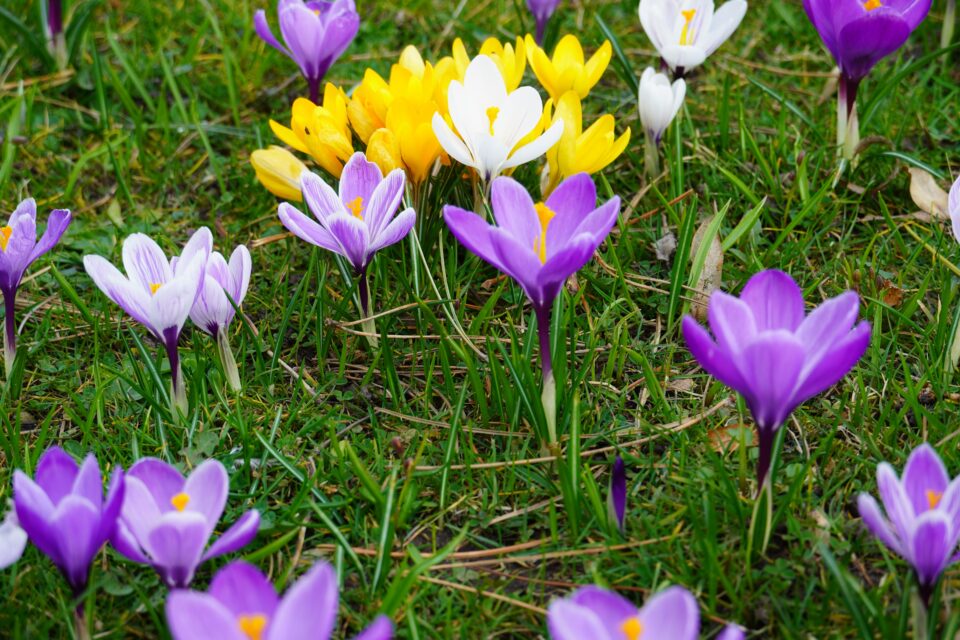Today, organic gardening is an incredibly popular hobby and career that is emerging. The demand for products that come from organic grown plants and crops is numerous. Now is the time to enter into it. Here are some tips that you can use to get started with your organic gardening strategies.
Plant your own seeds to guarantee organic produce. Sowing your own vegetable seeds gives you the comfort and assurance that your produce has been grown organically from seed to table. Choose plants that are easy to germinate such as broccoli, cabbage, basil and tomatoes. Find out the best time of the year to sprout your chosen produce.
When starting your organic garden, you must be sure you have the proper size containers because containers are crucial for holding your plants. Your containers should be around two or three inches in depth for them to be effective. In addition, you should make sure you have holes in the bottom of your containers for drainage purposes.
You should keep your seeds damp without drowning them in water. Spray water over the soil to keep it moist, and place the pots or trays in which you have your seeds in water so that the soil can absorb the water. Make sure you replace the water in which your pots are standing regularly.
Make easy work of washing your organic produce with a laundry basket. As you pick your produce, lay them in a plastic laundry basket, which works as a strainer. Hold the hose over the top and the water can make quick work of rinsing all the dirt and other matter off of your fruits and veggies.
Don’t harm your native critters. Some animals can naturally keep the bug population down; one such example of a good pest-predator is the bat. Bats are well-known for being bug consumers. Since your garden may sometimes look like a tasty treat to these tiny critters, having bats around can help reduce their population naturally, without the usage of harmful pesticides.
Encourage bees, wasps, ladybirds and other beneficial insects. These insects are vital in an organic garden. Bees are nature’s most efficient pollinator, and wasps and ladybirds prey on destructive insects in the garden. Ladybirds are particularly effective at ridding your plants of aphids. To attract these beneficial insects, plant companion herbs and flowers around the edge of your vegetable garden.
The best way to water your organic garden is to use a soaker hose. Soaker hoses not only conserve water, but also direct the water exactly where it needs to go, into the dirt, rather than on the leaves and into the air. By watering the leaves, you leave your plants susceptible to fungus growth.
Encourage toads to take up residence in your organic garden. Toads are a natural predator of many of the pesky bugs that will eat and destroy your crops. Create makeshift toad houses out of overturned broken clay pots and keep soil nice and moist to make it conducive to amphibian life.
If you aren’t ready to devote your time and energy to a full organic garden or just don’t have the space for one, use a container instead. Look for plants that are small and well suited for containers. Whiskey barrels are great for container gardens because they have plenty of room for roots to grow and can be used for multiple varieties of plants.
If your garden shed is far from your garden, try to carry your frequently used tools with you. This will save you time by helping you avoid making many trips to your shed to get tools. If you will need more tools than you can carry, you could consider using a wagon or a bucket to hold all of your tools.
An important tip for organic gardening that will naturally help prevent disease from appearing in your plants is to move your plants to different spots of your garden each year. This will keep any disease from spreading because the soil doesn’t build up harmful organisms from planting in the same spot each year.
In general, it is best to water your plants early in the morning. This is because the sun and wind will evaporate the moisture throughout the day. Watering in the morning gives your plants the best opportunity to spend more time using the water. It is also dangerous to water late in the day because if the water has not evaporated from the foliage, fungal diseases can start to appear overnight.
Be careful when you are moving your plants from plastic containers to the soil. Plants often will end up with bound roots when they have spent too much time in plastic. Turn the plastic container upside-down slowly and tap gently to remove plant. Avoid damaging the plants delicate root system.
The best way to spread mulch on your organic garden is with a flat-headed rake. A flat-headed rake is effectively two tools in one. You can use the tined side to distribute mulch over fresh areas. When you flip the rake over, its flat side makes an efficient tool for smoothing your mulch and making sure it is distributed evenly.
You should now see why this hobby and career is very popular. There is a lot that you can do in it. There is lots of information on how to start enjoying the benefits of it. By following these tips, you are well on your way to becoming a successful organic gardener.
